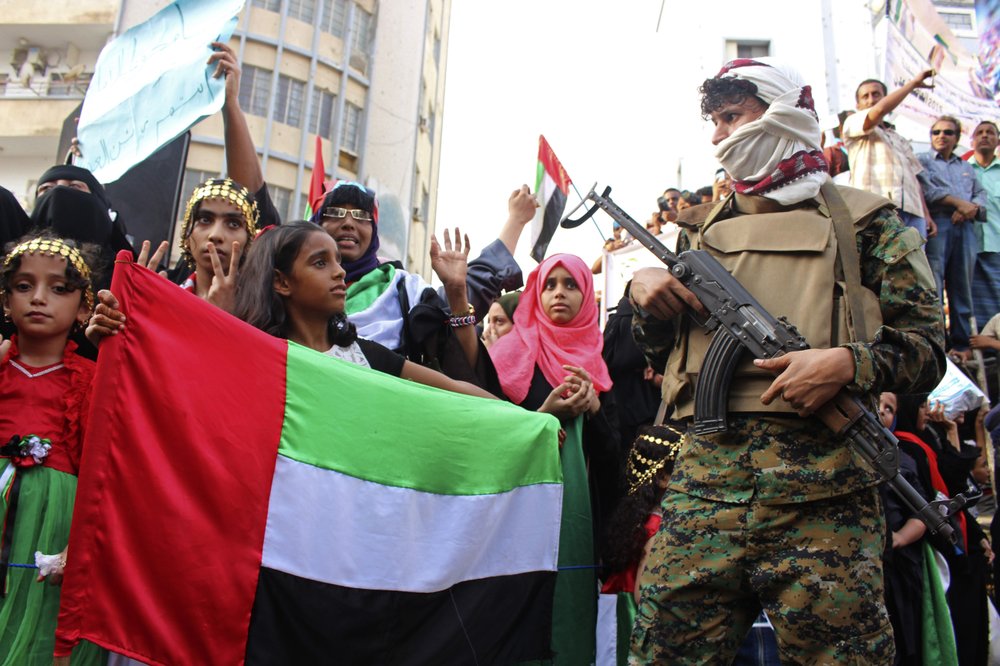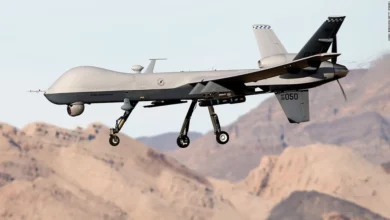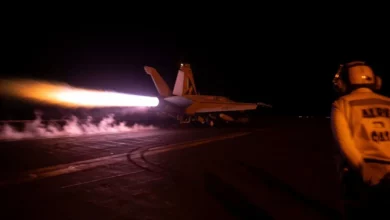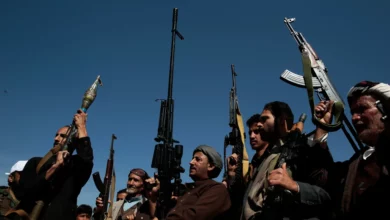Sanaa — Yemeni forces loyal to President Ali Abdullah Saleh fired at a protest march in Sanaa on Sunday, wounding at least 10 people, doctors said, heightening tension as opposition leaders met Gulf Arab mediators in Saudi Arabia.
Doctors said around 200 more demonstrators were overcome by tear gas during the clashes when they marched outside their normal protest zone in the streets near Sanaa University, a hub of pro-democracy demonstrations that have lasted three months.
"We neared the Sanaa Trade Center when police confronted us with tear gas, and suddenly opened heavy gunfire on us from all directions," said Sabry Mohammed, a protester. "A state of terror set in among the demonstrators, and some of them fled into side streets."
Both Western and Gulf Arab allies have tried without success so far to broker a resolution to a crisis over a transition of power from Saleh, who has led the Arabian Peninsula state for 32 years and says he wants a handover, but only to "safe hands."
Saudi and Western allies of Yemen fear a prolonged standoff could ignite clashes between rival military units and cause chaos that would benefit an active Al-Qaeda wing operating in the poor, mountainous country.
Hundreds of security forces deployed across the area near where the clashes took place on Algeria Street in Sanaa, roughly two kilometers outside the normal protest zone. Some were on foot while others were in armoured vehicles.
The wounded were rushed to hospital by ambulance and private car, and tear gas canisters littered the road. A protest official told anti-Saleh crowds over a loudspeaker that dozens of protesters had been arrested by a nearby mosque.
Clashes also were reported to have taken place in Dhamar, just south of the capital.
A political survivor who has described governing Yemen as akin to "dancing on the heads of snakes," Saleh has warned of civil war and the break-up of the country if he is forced out.
More than 116 protesters have been killed in clashes with security forces since late January.
SAUDI MEETING
Gulf Arab states stepped in this month with an offer to mediate after Western-brokered talks stalled, and an opposition delegation was meeting Gulf foreign ministers in Riyadh to lay out conditions for entering formal talks.
The opposition, whose delegation is headed by former foreign minister Mohammed Basindwa, rejected a Gulf framework for talks last week, saying it wanted Saleh out within two weeks and the Gulf plan did not include a quick or clear transition timetable.
Basindwa told Reuters the opposition had agreed to meet at the invitation of Saudi Foreign Minister Prince Saud al-Faisal on condition no Saleh representatives would be included.
Saleh stepping down was "not negotiable," Basindwa said.
"We hope the American and European friends as well as our brothers in the Gulf will support this initiative because there will be no solution without Saleh's departure," he said.
Saleh had welcomed the Gulf plan, which appeared to promise him immunity from prosecution, an issue that had proved a stumbling block in earlier talks that stalled. Saleh accepted the Gulf talks framework the next day.
The opposition wants to keep open the option of prosecuting him but has indicated that issue alone would not thwart a deal.
After initially offering to leave after his current term ends in 2013, Saleh subsequently said he would step down after holding elections, possibly this year.
Even before the start of the protests, inspired by the toppling of the Tunisian and Egyptian presidents, Saleh was struggling to quell a separatist rebellion in the south and cement a truce with Shia Muslim rebels in the north.
Anger lingered on the streets after Saleh branded the opposition liars and bandits on Saturday.
Appealing to religious sensitivities in the conservative Muslim country, Saleh had also criticised the mixing of unrelated men and women among protesters in Sanaa.
On Friday, hundreds of thousands protested against Saleh in Sanaa, Aden and Taiz. Clerics and tribal leaders who once backed Saleh issued a statement calling for his immediate departure and that of his relatives in the military and security forces.




